Department News
Brandeis Sociology Department Latest News and Publications
- sneha gantla, "Towards a Theory of Racial Philanthropy: Charting Racial Capitalism Relations in the Nonprofit Sector."
- Danielle Jacques, "Toward a Sociology of Land: Epistemic Erasure & Indigenous Analytics in Urban Sociology" and "Virtue or Blight? Food Gardens and the Racial State, 1917-1945."
- Jon Jacob, "District Demographic Predictors of Anti-“CRT” and Anti-LGBTQ Disruptions."
- Lijun Lin, "Confronting a (Geo)politicized Transnational Field: The Case of Chinese American Immigrants."
- Gowri Vijayakumar, Panelist: Global Intersectional Perspectives on Capitalism.
- Siri Suh, Panelist: Life After Dobbs v. Jackson Women’s Health Organization: Intersectional Inequality and the National and Global Fight for Reproductive Justice and "Liberating, decolonizing, and queering science, knowledge, and technology."
- Laura Miller, "Cultural Movements, Cultural Change, and Unintended Outcomes:
The Case of Vegetarianism." - Siri Suh, Presenter: Sexual and Reproductive Health: Tips and Tricks Navigating a Complex Research and Policy Terrain.
- Nihal Kayali, "Residual Temporariness and The Limits of Citizenship for Syrian Refugee Doctors in Turkey."
- Sanchita Dasgupta, "Collective Identity Fissures in Ethnoracial Mobilisation and the South Asian Cultural Groups on Elite College Campuses."
- Manning Zhang, "Re-politicize Health: Intersected Inequities in Health Knowledge Production and Application."
- Lijun Lin coauthored an article published in Social Forces titled, "Confronting linked immobility: how Chinese migrants managed family crisis during a global catastrophe."
- Sara Shostak published a coauthored piece with Brandeis undergraduate students titled, "Growing community, food sovereignty, and health: A case study of a farm-based produce prescription program," in the Journal of Agriculture, Food Systems, and Community Development.
- Jing Huang recently published an article in the Journal of Consumer Culture, titled “Crossing Consumption Fields: Acculturation and Status Consumption of Chinese Students Attending U.S. Colleges." Dr. Huang also successfully defended her dissertation earlier this summer - congratulations!
May 28, 2025
 Sociology PhD student Lauren Crosser published an article in Cambridge University Press Social Science History titled, “Those “who have no interest in the soil”: Poor Southern White People and Property in Antislavery Arguments for Homesteading”. In the article, Lauren uses the case of the Homestead Act of 1862, to argue that antislavery elites articulated a property interest in whiteness in arguments for homesteading.
Sociology PhD student Lauren Crosser published an article in Cambridge University Press Social Science History titled, “Those “who have no interest in the soil”: Poor Southern White People and Property in Antislavery Arguments for Homesteading”. In the article, Lauren uses the case of the Homestead Act of 1862, to argue that antislavery elites articulated a property interest in whiteness in arguments for homesteading.
May 1, 2025
Sanchita Dasgupta and Lijun Lin were selected as co-winners of this year's Berkowitz Award. The Sociology Department annually awards a $600 prize for assistance in dissertation research in the name of the late Steven Berkowitz, PhD.May 1, 2025
 Danielle Jacques was selected as this year's winner of the Peter Conrad Award for Graduate Student Research. In honor of emeritus faculty member Peter Conrad, the Sociology Department annually awards funds, up to $600, to a PhD student for pre-dissertation research.
Danielle Jacques was selected as this year's winner of the Peter Conrad Award for Graduate Student Research. In honor of emeritus faculty member Peter Conrad, the Sociology Department annually awards funds, up to $600, to a PhD student for pre-dissertation research.
April 22, 2025
Professors Sara Shostak, Rachel McKane, and Sarah Mayorga have undertaken a project to look at the history of flooding in Waltham through the memories of city residents. Their project was featured in the Waltham Times.March 25, 2025
 Associate Professor Chandler Rosenberger organized and spoke at a colloquium at the Mandel Center for Humanities on "Culture and Identity in East Asia" in March. The talks, featuring speakers from China and Japan, addressed how to use text analysis software to reveal trends in conversations about national identity and values.
Associate Professor Chandler Rosenberger organized and spoke at a colloquium at the Mandel Center for Humanities on "Culture and Identity in East Asia" in March. The talks, featuring speakers from China and Japan, addressed how to use text analysis software to reveal trends in conversations about national identity and values.
February 23, 2025
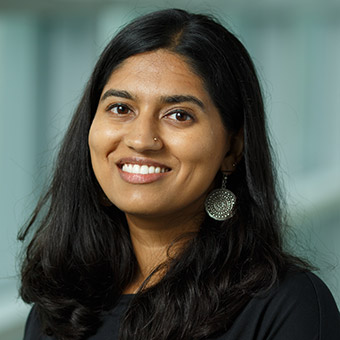 Associate Professor Gowri Vijayakumar published an article in Scroll.in titled, “Lessons sex workers in India can offer on surviving the USAID freeze.” The article examines how HIV prevention organisations and activism have built various strategies to better serve their communities and resist the conditions of foreign donors.
Associate Professor Gowri Vijayakumar published an article in Scroll.in titled, “Lessons sex workers in India can offer on surviving the USAID freeze.” The article examines how HIV prevention organisations and activism have built various strategies to better serve their communities and resist the conditions of foreign donors.
January 23, 2025
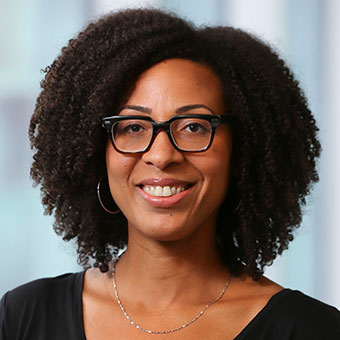 Associate Professor Siri Suh received an additional $600,000 Gender Equity and Governance Grant from the William and Flora Hewlett Foundation for the Into Women's Hands project for 2025-2027. Since 2022, Professor Suh has earned $1.5 million from the foundation to support her research.
Associate Professor Siri Suh received an additional $600,000 Gender Equity and Governance Grant from the William and Flora Hewlett Foundation for the Into Women's Hands project for 2025-2027. Since 2022, Professor Suh has earned $1.5 million from the foundation to support her research.
November 13, 2024
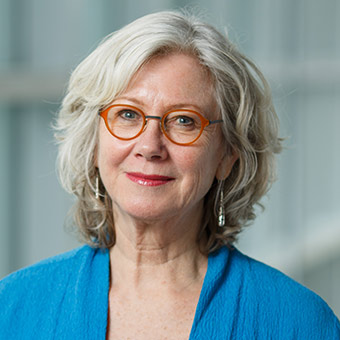 Professor Emerita Karen V. Hansen published Working-Class Kids and Visionary Educators in a Multiracial High School: A Story of Belonging (Lexington Books). This book tells the story of Sunnyvale High School in California from 1956 to 1981. As a graduate of the class of 1973 and a historical sociologist, Professor Hansen conducted oral histories with 55 people spanning a great diversity of experiences and origins—principals, teachers, alumni, members of the Chicano Student Union and Pep Club, student athletes, and competitive debaters. She worked with Nicholas Monroe to scour through yearbooks and issues of the student newspaper to tell the remarkable tales of teachers’ innovations and students' hardships and triumphs.
Professor Emerita Karen V. Hansen published Working-Class Kids and Visionary Educators in a Multiracial High School: A Story of Belonging (Lexington Books). This book tells the story of Sunnyvale High School in California from 1956 to 1981. As a graduate of the class of 1973 and a historical sociologist, Professor Hansen conducted oral histories with 55 people spanning a great diversity of experiences and origins—principals, teachers, alumni, members of the Chicano Student Union and Pep Club, student athletes, and competitive debaters. She worked with Nicholas Monroe to scour through yearbooks and issues of the student newspaper to tell the remarkable tales of teachers’ innovations and students' hardships and triumphs.
June 26, 2024
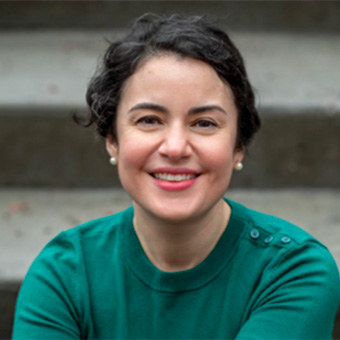 Professor Sarah Mayorga published a personal essay on growing up in an anti-communist home & now critically studying racial capitalism in the Berkeley Journal of Sociology.
Professor Sarah Mayorga published a personal essay on growing up in an anti-communist home & now critically studying racial capitalism in the Berkeley Journal of Sociology.
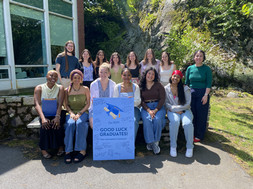 Congratulations to our May 2024 Sociology undergraduate student graduates!
Congratulations to our May 2024 Sociology undergraduate student graduates!
 The Provost's office hosted a retirement luncheon in the spring of 2024 for Professor Karen V. Hansen.
The Provost's office hosted a retirement luncheon in the spring of 2024 for Professor Karen V. Hansen.
- Irving Kenneth Zola Prize for Excellence in Sociology: Floriesha Bastien
- Dewey Boyte Prize for the Scholarship and Practice of Democracy: Rachel Bindman
- Elise Boulding Sociology and Social Activism Award: Norah Khadraoui
July 1, 2024
Wendy Cadge, Dean of the Graduate School of Arts and Sciences and the Barbara Mandel Professor of Humanistic Social Sciences and Professor of Sociology, has been selected as the next president of Bryn Mawr College in Pennsylvania. Congratulations to Wendy from all of us!
As Carol A. Fierke (Provost and Executive Vice President for Academic Affairs) shares, Wendy’s work as a researcher, teacher, mentor, and administrator has left an indelible mark on Brandeis. Since she arrived here as an assistant professor in 2006, she has held a range of academic leadership positions, including chair of the women’s, gender and sexuality program (now department), head of the Division of Social Sciences, and senior associate dean for strategic initiatives in the School of Arts and Sciences. She won the Michael Walzer '56 Award for Teaching Excellence and Dean of Arts and Sciences Mentoring Award for Outstanding Teaching of Students in the Graduate School of Arts and Sciences. Among her significant scholarly achievements at Brandeis, Wendy founded the Chaplaincy Innovation Lab, which studies the way chaplains deliver spiritual care, and provides information and support to chaplains worldwide.
Congratulations to Wendy!
May 14, 2024
Rachel Guaderrama, Sociology PhD student, earned a Fulbright U.S. Student Award to conduct research in South Korea. The grant is for ten months and Rachel will be conducting fieldwork, interviews, and quantitative analysis focused on multicultural families in South Korea as part of her dissertation project. Brandeis Graduate School of Arts and Sciences published this article about the award.May 1, 2024
Professor Sarah Mayorga is a co-recipient of the 2024 Graduate School of Arts and Sciences Dean’s Mentoring Award. Congratulations from all of us, Sarah!
Sarah Mayorga of Sociology and Bing Xu of Chemistry are the 2024 co-recipients of the Graduate School of Arts and Sciences Dean’s Mentoring Award. In their nominations, Mayorga and Xu both received very high praise from their students. Charles Golden, Interim Dean of the Graduate School of Arts and Sciences, said, "We are thrilled to be able to recognize these two highly deserving faculty members, who exemplify all the goals that we aim for as teachers at Brandeis working to support the success of our students."
May 1, 2024
Conrad awardIn honor and memory of emeritus faculty member, Peter Conrad, the Sociology Department annually presents the Conrad award to fund a PhD student for pre-dissertation research. The 2023-2024 recipient is Ersie Konstas.
Berkowitz Award
The Sociology Department annually awards one prize to a PhD student for assistance in dissertation research in the name of the late Steven Berkowitz, PhD. The 2023-2024 recipient is Lauren Crosser.
GSAS Graduate Teaching/TA award
Sarah Halford (PhD candidate) and Emma Sundeen (SOC/WGS MA student) were selected as Sociology's nominees for the 2023-2024 GSAS Graduate Teaching/TA award.
- Princeton in Africa (PiAF) Alumni Mini Grant- this grant funds the application fee for student membership in the Caribbean Studies Association (CSA) and the student registration fee for the American Sociological Association (ASA) Annual Conference in 2024.
- Mandel Writing Retreat Grant- this grant supports organizing a PhD Writing Retreat aimed at creating affinity among BIPOC doctoral students at Brandeis.
May 28, 2024
Professor Sarah Mayorga and Elizabeth Korver-Glenn (UNC-Chapel Hill) published the book A Good Reputation: How Residents Fight for an American Barrio through University of Chicago Press.Manning Zhang is a joint PhD student in Sociology and Social Policy with the Heller School for Social Policy and Management. She was recently featured in the Graduate School of Arts and Sciences “Geeking Out With” series that highlights GSAS students and their passions.
Manning has authored several publications, presented at conferences and won several awards during her time at Brandeis. Here are a few highlights:
Publication (research):
Zhang, M. (2024). Book Review: The Quest for Sexual Health: How an Elusive Ideal Has Transformed Science, Politics, and Everyday Life. Sexualities, 0(0). https://doi.org/10.1177/13634607241238722
Publication (public-facing):
1. CCL Event Report: Theodicy and the Problem of Meaning – Manning Zhang (https://asaculturesection.org/2023/07/31/ccl-event-report-theodicy-and-the-problem-of-meaning-manning-zhang/)
2. CCL Event Report: Belligerent Nationalism - Manning Zhang (https://asaculturesection.org/2023/06/09/ccl-event-report-belligerent-nationalism/)
3. Four Questions with Talia Shiff - Manning Zhang (https://asaculturesection.org/2023/03/14/four-questions-with-talia-shiff/)
4. Four Questions with Larissa Buchholz - Manning Zhang (in collaboration with Larissa Buchholz) (https://asaculturesection.org/2024/02/01/four-questions-with-larissa-buchholz/)
Internal Awards:
2024 GSAS 3MT Competition, finalist and 1st place winner in the Social Sciences/Humanities/Arts division
2024 Sagan Family Grant for Graduate Research, Brandeis University, Waltham, MA
2024 Provost Doctoral Research Award, Brandeis University, Waltham, MA
2023 The GSAS PhD Research Award, Brandeis University, Waltham, MA
2023 spring and fall Office of Graduate Affairs Travel and Research Grant, Brandeis University, Waltham, MA
2023 The GSAS PhD Conference Award, Brandeis University, Waltham, MA
External Award:
ASA Student Forum Travel Award
Presentations:
2024 “Unveiling the Impact of Bike Infrastructure on Urban Neighborhood Transformation in the Greater Boston Area.” Boston Area Research Initiative (BARI) Conference 2024: Greater Boston’s Annual Insight-to-Impact Summit, Boston, MA, April.
2024 “Boston moving: fitness clubs and community-making practices.” American Sociological Association Community and Urban Sociology Section Virtual Mini-Conference: Building Communities in Research and Practice, virtual, April.
2024 “Tackling the Bamboo Ceiling: Experience of Early-stage Immigrant Asian Women Scholars in the United States.” 2024 Education & Health Research Hub Conference at George Mason University, virtual, February.
2023 “Fit for good: Contested Social Class, Gender and Racial Contexts in the Weight Room.” American Sociological Association Annual Conference, Philadelphia, PA, August.
2023 “The Migration Old: explore Chinese senior rural-urban population in the past 30 years with the age-cohort-period model.” Population Association of America Applied Demographic Conference, Annapolis, MD, February.
May 1, 2024
Associate Professor Derron Wallace was recognized three times this year with these three awards- Distinguished Early Career Award, Sociology of Race & Ethnicity, American Sociological Association
- Distinguished Early Career Award, Sociology of Children & Youth, American Sociological Association
- Public Sociology Award, Eastern Sociological Society
April 4, 2024
Associate Professor Siri Suh gave the 5th Annual M. Jacqui Alexander Lecture in African Diaspora Studies at BrandeisMarch 21, 2024
Assistant Professor Michael Strand published an article with Brandeis PhD alum Sam Leonard titled "Performativity: Model and meaning in a post-Austinian frame" in the European Journal of Social Theory." This article proposes a post-Austinian approach to performativity by drawing from Peircean semeiotics.January 4, 2024
Ethnic and Racial Studies published a Symposium on Derron Wallace's book, The Culture Trap: Ethnic Expectations and Unequal Schooling for Black Youth. The subject matter of Derron Wallace’s book is the overreliance on ideas about culture to explain the underachievement of black youth in the context of education. This symposium brought together four scholars who have written critical commentaries on key facets of the book.December 1, 2023
Associate Professor Siri Suh published an article in the University of Chicago Press Journals with Julia McReynolds-Pérez (College of Charleston) titled, “Subversive Epidemiology in Abortion Care: Reproductive Governance from the Global to the Local in Argentina and Senegal”. In the article, the authors draw on ethnographic fieldwork in Argentina and Senegal to explore how health workers have adapted the global post abortion care model in ways that simultaneously challenge and reinforce national prohibitions on abortion.November 22, 2023
Wendy Cadge co-authored the article "The Persistence of Religion as a Master Status for Chaplains" with Amy Lawton, published in Review of Religious Research.November 13, 2023
Derron Wallace released a book trailer for his book The Culture Trap – 2024. The video was inspired by his son, Jeremiah.October 26, 2023
Michael Nooy-Strand published a chapter in The Handbook of the Sociology of Morality, Volume 2 titled "Social Justice as a Field". The chapter proposes a field theory approach to morality and offers analysis of contemporary social justice as a moral field.October 18, 2023
Assistant Professor Rachel McKane co-authored an article in the Antipode with Patrick Trent Greiner (University of Washington), David Pellow (University of California, Santa Barbara) titled “Mutual Aid as a Praxis for Critical Environmental Justice: Lessons from W.E.B. Du Bois, Critical Theoretical Perspectives, and Mobilising Collective Care in Disasters."October 3, 2023
Michael Strand published the article “Why Don’t Big Theory Books Work in the US? A Reply to Simon Susen” in Social Epistemology Review and Reply Collective.October 2, 2023
Professors Siri Suh and Gowri Vijayakumar published their new article "Toward Transnational Feminist Methodologies in Global Health: Critical Ethnographies of HIV and Abortion," in the journal Studies in Comparative International Development as part of a special issue on Global Health.September 28, 2023
Assistant Professor Rachel McKane co-authored an article with John Logan and Brian Stults on contributors to concentrated poverty, which was published in the Journal of Urban Affairs.September 4, 2023
Professor Wendy Cadge and Princeton Professor Carolina P Seigler published the article "How Organizational Leaders Negotiate Religious Differences: Frameworks of Mandate and Interpersonal Care" in the Journal of the American Academy of Religion. The article identifies two distinct institutional frameworks (“mandate” and “interpersonal care”) that provide chaplaincy leaders with different schemas, tools, and strategies to use when understanding and motivating their engagement with religiously diverse publicsJune 4, 2023
Professor Sara Shostak published the article "Fit Around the Farm: A holistic approach to health promotion for elders" in SSM - Qualitative Research in Health with Tamar Harrison and Linda Palmer. This article examines the experiences and perspectives of participants in Fit Around the Farm, an innovative, farm-based, multicomponent health promotion program in Boston, MA.February 7, 2023
Professor Sara Shostak published the article "Food and Inequality" in the 2023 Annual Review of Sociology. The article describes how food is implicated in the production of inequalities across scales and sites.January 3, 2023
Derron Wallace’s book, The Culture Trap, has received the following awards:
- Pierre Bourdieu Best Book Award, Sociology of Education, American Sociological Association
- Oliver Cromwell Cox Book Award for Anti-Racist Scholarship, Race & Ethnicity, American Sociological Association
- Honorable Mention, Outstanding Book Award, Sociology of Children & Youth, American Sociological Association
- Finalist, C. Wright Mills Award, Society for the Study of Social Problems
PROSE Outstanding Book Award, Educational Theory & Practice, Association of American Publishers - Silver Medal, Independent Publishers’ Best Book Award, Education Commentary & Theory
- Outstanding Book Award, Society of Professors of Education
- Outstanding Book Award, Educational Research, Society for the Study of Social Problems
May 15, 2023
Derron Wallace has been named the Jacob S. Potofsky Chair in Sociology (2023). This appointment recognizes Derron's outstanding accomplishments as a scholar and a teacher, as well as his considerable contributions to the Brandeis community. Congratulations, Derron!October 19, 2022
With sympathy, we share the passing of Gordie Fellman, professor emeritus of sociology.- View the memorial service video held at Brandeis University, Oct. 24, 2022
- Read a remembrance of Gordie
January 12, 2022
Congratulations to Associate Professor Siri Suh for receiving the Eileen Basker Memorial Prize from the Society of Medical Anthropology of the American Anthropological Association for the article “Dying to Count Post-Abortion Care and Global Reproductive Health Politics in Senegal”. The Eileen Basker Memorial Prize is awarded annually for a significant contribution to scholarship on gender and health by scholars from any discipline or nation, for a specific book, article, film, or exceptional PhD thesis produced within the preceding three years.- Outstanding Book Award, Global Division, Society for the Study of Social Problems, 2022.
- Best Scholarly Book Award, Section on Global and Transnational Sociology, American Sociological Association, 2022.
- Transnational Book Award, Section on Asia and Asian America, American Sociological Association, 2022.
- Distinguished Scholarly Book Award Honorable Mention, Section on Sexualities, American Sociological Association, 2022.
April 30, 2021
Sara Shostak, Wendy Cadge, Julia Bandini (Sociology PhD), Mariah Lewis (Sociology UDR) and Sophie Trachtenberg (Recent Alum), and others published "Intensive Care Unit Nurses Living Through COVID-19: A Qualitative Study" in Wiley Online Library.November 2, 2015
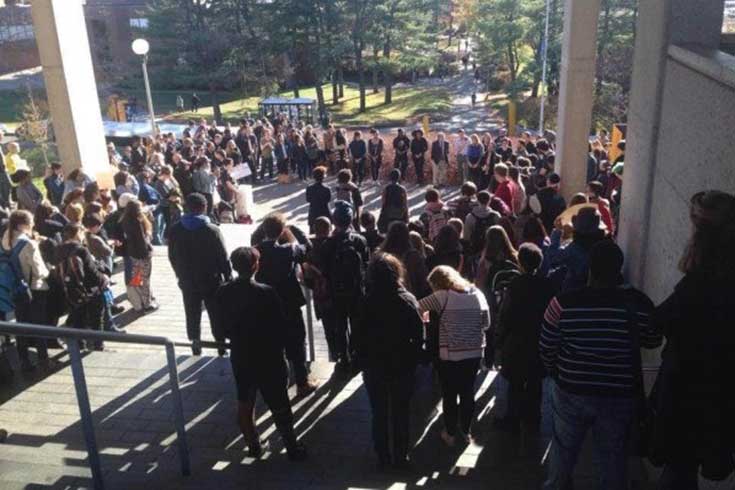 The faculty and staff of the Department of Sociology stand in solidarity with students who have occupied Bernstein-Marcus. We strongly endorse their vision of a more inclusive and diverse university. We commend their leadership and courage in asking all of us to participate in the realization of this vision. We commit ourselves to actively engaging to deepen the conversation and to support concrete efforts to move towards a more equitable and just Brandeis.
The faculty and staff of the Department of Sociology stand in solidarity with students who have occupied Bernstein-Marcus. We strongly endorse their vision of a more inclusive and diverse university. We commend their leadership and courage in asking all of us to participate in the realization of this vision. We commit ourselves to actively engaging to deepen the conversation and to support concrete efforts to move towards a more equitable and just Brandeis.Our discipline arose from the study of inequality and injustice, and these remain central concerns. We recognize the harms done by systems of structural inequality, which exact deadly and unacceptable tolls on the bodies, souls, families, and communities of people of color in the United States. We also know that the values and policies that have attempted to address the persistent problems of racism and exclusion in our society and our university have often fallen short, and that new discussions, new ideals and new practices are necessary to move our communities forward.
We maintain an unshakable commitment to teaching and research focused on inequality and injustice, their consequences, and mechanisms for their amelioration. We support continued negotiations between the students, university administration, interim President Lynch and the Board of Trustees to find a collaborative path for addressing the yet unfulfilled social justice promise of Brandeis. We will continue to engage with our students, colleagues, and university leaders to address these issues on campus and beyond in a constructive and collaborative manner.